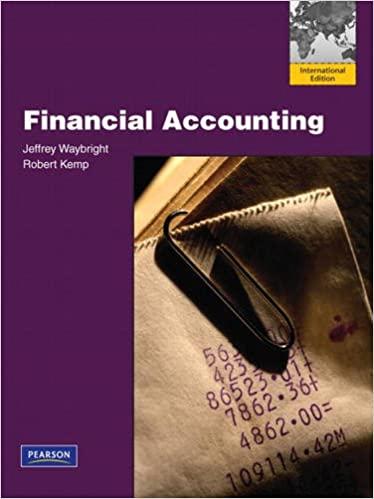Question
Which judicial remedy can a beneficiary use to be compensated monetarily (either directly or through the trust) for a trustees breach of trust? Question 1
Which judicial remedy can a beneficiary use to be compensated monetarily (either directly or through the trust) for a trustees breach of trust?
Question 1 options:
| Civil lawsuit to compel the trustee to reimburse the trust for any loss or depreciation in value of the trust property | |
| Removal of the trustee and appointment of a new trustee | |
| An injunction to compel the trustee to do or refrain from doing the act that would constitute the breach of trust | |
| Suing for specific performance |
Question 2 (2 points)
Which is NOT considered valid grounds for the removal of a trustee?
Question 2 options:
| Lack of capacity | |
| Resignation of the trustee | |
| Commission of a crime | |
| Showing favoritism to one or more beneficiaries |
Question 3 (2 points)
The court may appoint or replace a trustee in all of the following circumstances EXCEPT:
Question 3 options:
| The trustee is incompetent | |
| The named trustee declines the position. | |
| The trustee dies. | |
| The named trustee is also a co-beneficiary. |
Question 4 (2 points)
Which of the following is NOT an essential element of a trust?
Question 4 options:
| A sale or gift of property | |
| One or more beneficiaries | |
| Real or personal property | |
| One or more trustees |
Question 5 (2 points)
Which duty prohibits a trustee from personally profiting from his/her position as trustee (other than the compensation allowed by contract or law)?
Question 5 options:
| Duty to take possession of and preserve trust property | |
| Duty of loyalty | |
| Duty to prevent the investment of the trust property | |
| Duty to make payments of income and principal to the named beneficiaries |
Question 6 (2 points)
Which of the following is a type of implied trust?
Question 6 options:
| Testamentary trust | |
| Private trust | |
| Active trust | |
| Constructive trust |
Question 7 (2 points)
Which is NOT a subcategory of express trusts?
Question 7 options:
| Inter vivos or testamentary trusts | |
| Private or public trusts | |
| Active or passive trusts | |
| Implied or nonimplied trusts |
Question 8 (2 points)
Which is NOT a type of resulting trust?
Question 8 options:
| Failed trust | |
| Purchase-money resulting trust | |
| Implied trust | |
| Excessive endowment trust |
Question 9 (2 points)
Which function CANNOT be performed by a pour-over will?
Question 9 options:
| It can allow the testator to name a personal guardian for minor children. | |
| It can dispose of property that the testator neglected to add to the trust before death. | |
| It can dispose of property acquired by the testator through gifts, inheritance, or good fortune shortly before death. | |
| It can be used independently as a substitute for a will. |
Question 10 (2 points)
Which is NOT an advantage of using a revocable living trust as a substitute for a will?
Question 10 options:
| The need for court-appointed guardians for minors is eliminated. | |
| Publicity is avoided. | |
| The settlor maintains ownership of assets. | |
| A living trust is not under the control or supervision of the probate court. |
Step by Step Solution
There are 3 Steps involved in it
Step: 1

Get Instant Access to Expert-Tailored Solutions
See step-by-step solutions with expert insights and AI powered tools for academic success
Step: 2

Step: 3

Ace Your Homework with AI
Get the answers you need in no time with our AI-driven, step-by-step assistance
Get Started


